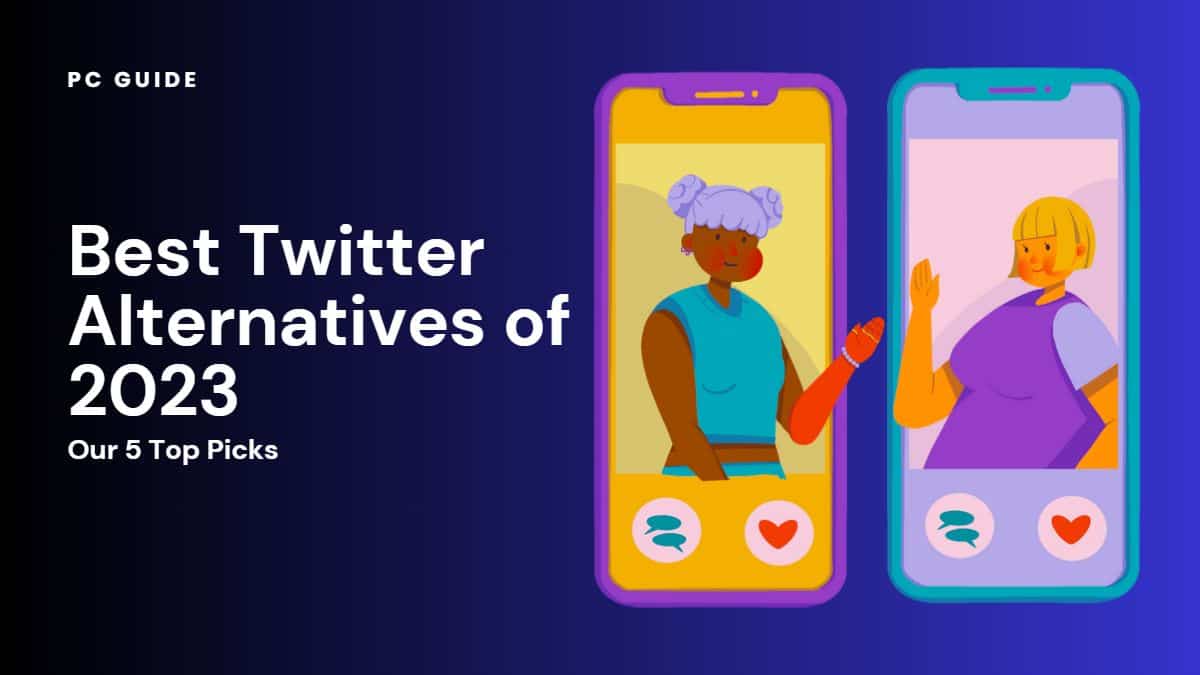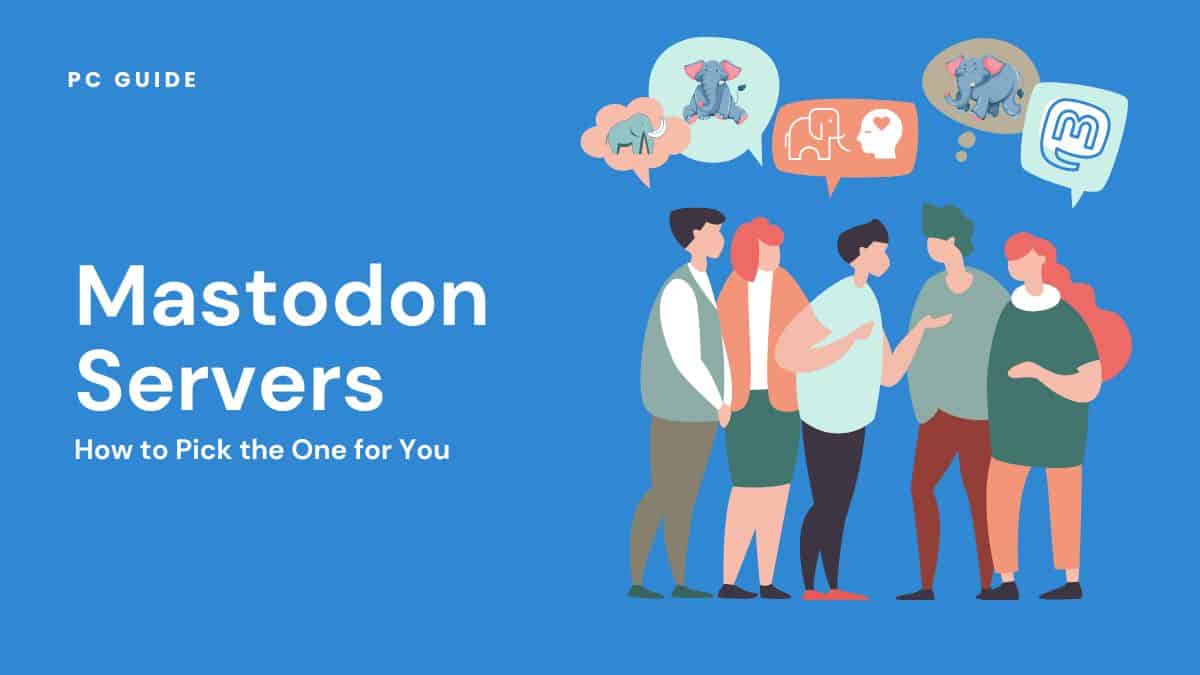Mastodon vs Twitter: Which is Better?
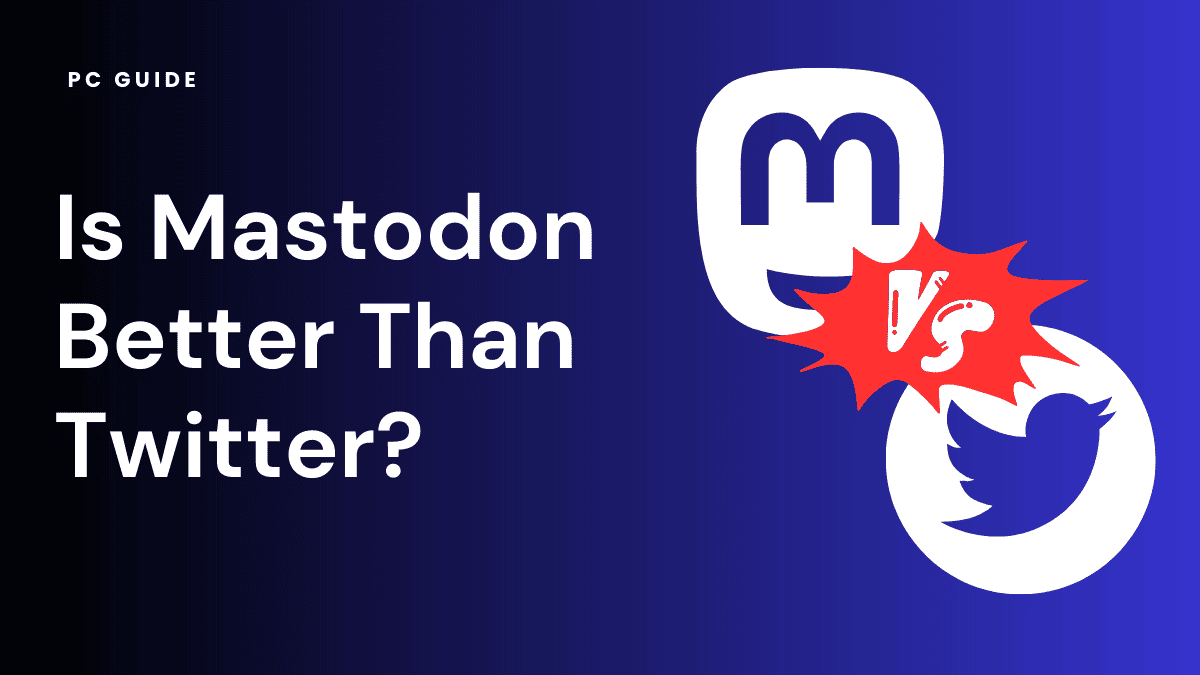
Table of Contents
Every day, millions of individuals log into Twitter, sharing thoughts and engaging in discussions on a myriad of topics. Despite its widespread use and popularity, issues regarding security and data privacy have prompted users to seek other options. Mastodon has emerged as a promising alternative in this context. As an open-source social media platform, it offers users greater control over their social exchanges. In this article, we’ll delve into the Mastodon vs. Twitter debate, comparing key facets such as content moderation, user interface, and freedom of speech.
By the end, we aim to provide insight into whether Mastodon is a superior choice for users who prioritize security, privacy, and control in their social media experiences.
Understanding Mastodon and Twitter
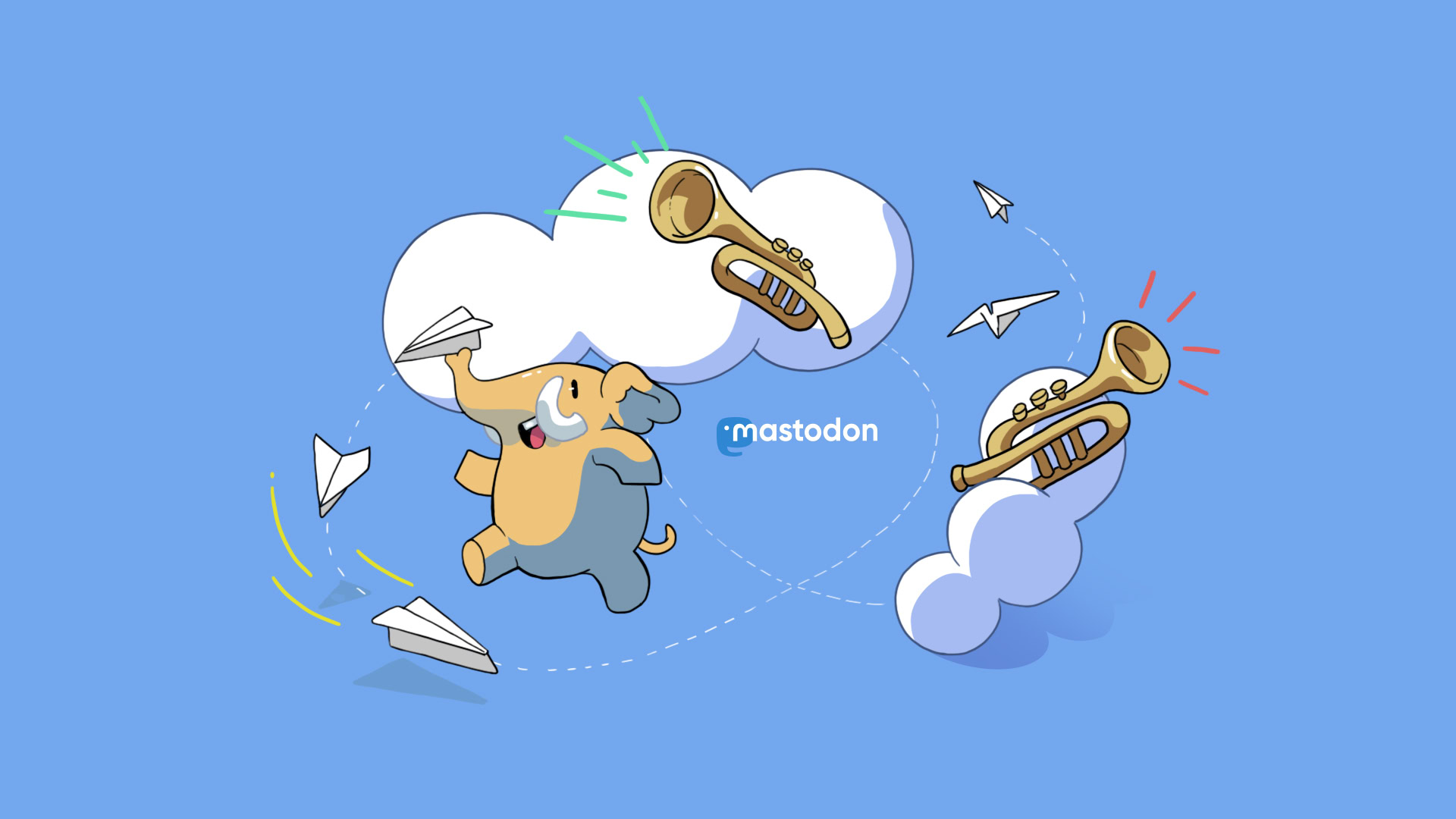
When it comes to social networks, Twitter has been a dominant player for years. However, a new player, Mastodon, has entered the scene and is gaining traction among users worldwide. But what sets these two platforms apart?
Twitter, a well-known social media platform, has been around since 2006. It’s a place where users can share short messages, or “tweets,” and interact with others. Twitter has a massive user base, including celebrities like Elon Musk, and is often the go-to platform for breaking news and trending topics.
On the other hand, Mastodon, created by Eugen Rochko in 2016, is an open-source social network. It operates on a decentralized system of servers, also known as “instances.” Each instance is managed by its users, who set their own rules and moderation policies. Instead of tweets, Mastodon users share “toots,” which can be up to 500 characters long.
The key difference between Twitter and Mastodon lies in their structure. Twitter is a centralized platform, meaning all user data and interactions occur on one server owned by Twitter. Mastodon, however, is decentralized, with numerous servers owned by different individuals or groups. This structure gives Mastodon users more control over their content and interactions.
The Tech-Savvy User’s Guide to Mastodon and Twitter
For tech-savvy users, both Mastodon and Twitter offer unique features. Twitter’s user-friendly interface and widespread popularity make it an easy choice for many. Its features such as hashtags for trending topics and the ability to retweet posts make it a dynamic platform for real-time updates and discussions.
On the other hand, Mastodon’s open-source software allows for greater customization and control over your social media experience. It offers features similar to Twitter, such as “boosts” (equivalent to retweets) and the use of hashtags. However, Mastodon also offers additional features not found on Twitter, such as the ability to choose from different “instances” or communities, each with its own rules and moderation policies.
Mastodon vs. Twitter – Which one is better?
Here is a table that highlights some key differences between Mastodon and Twitter:
| Feature | Mastodon | |
|---|---|---|
| Ownership | Decentralized | Centralized |
| Character limit | 500 | 280 |
| Monetization | Not yet implemented | Advertising |
| Privacy | More control over privacy settings | Less control over privacy settings |
Many users claim Mastodon is better than Twitter because it uses a decentralized environment. On the other hand, Twitter operates on a centralized server, Mastodon, which uses “Instances,” independent-running servers. As a result, users on Mastodon feel safer due to better control over their data privacy and the communities they connect with. Users can have the option to choose an Instance or server that goes perfectly with their values. However, each instance has its own rules and regulations to follow while in use.
Mastodon can offer better privacy measures than Twitter. Mastodon's users will have little control over their posts, so they can freely decide who can view them. Above that, it offers end-to-end encryption for its direct messages to ensure the communication line remains private and secure. This security edge is their main advantage over Twitter, so it is seen as a suitable alternative. On the other hand, Twitter still faces a cybersecurity threat, as it had few similar concerns in the past.
Android Experience: Mastodon vs. Twitter
Both Mastodon and Twitter offer Android apps, allowing users to engage with their social media networks on the go. Twitter’s Android app offers a streamlined user experience, with easy access to features like tweets, retweets, likes, and direct messages.
Mastodon’s Android app, on the other hand, offers a more customizable experience. Users can choose from various “instances” or communities, each with its own rules and moderation policies. The app also offers unique features like content warnings and more granular privacy settings.
Boosts vs. Retweets: Understanding Engagement on Mastodon and Twitter
Engagement is a key aspect of any social media platform. On Twitter, users can engage with posts by liking, commenting, or retweeting them. Retweets, in particular, are a powerful tool for amplifying messages and spreading them to a wider audience.
Mastodon, on the other hand, uses “boosts” instead of retweets. Like retweets, boosts allow users to share posts with their followers. However, unlike retweets, boosts do not allow users to add their own commentary to the shared post. This subtle difference can impact the nature of discussions and the spread of information on the platform.
How Does Mastodon’s Decentralized Structure Benefit Users?
One of the key advantages of Mastodon over Twitter is its decentralized structure. This means that each server or “instance” on Mastodon can set its own rules for content moderation. This structure allows for a more personalized and controlled social media experience. Users can join instances that align with their interests or values, and they can even create their own instances if they’re tech-savvy enough.
Chronological Order vs. Algorithm: How Mastodon and Twitter Display Content
One key difference between Mastodon and Twitter is how they display content. Twitter uses an algorithm to highlight popular or relevant posts, which can help users discover new content and stay engaged with trending topics. However, this approach has been criticized for promoting echo chambers and spreading misinformation.
In contrast, Mastodon displays posts in chronological order, allowing users to see all posts from the people they follow, in the order they were posted. This approach can make it easier to keep up with ongoing discussions and avoid missing important updates.
Content Moderation Policies: Mastodon vs. Twitter
Each Mastodon server has its own set of rules and moderation policies, which are typically enforced by the server’s community. This can lead to a safer and more respectful environment, as harmful or offensive content can be quickly addressed. Twitter, on the other hand, has a platform-wide moderation policy. However, due to its large user base, enforcing these policies can be challenging, and harmful content may sometimes slip through.
Desktop vs Mobile: Comparing the Mastodon and Twitter User Experience
Both Mastodon and Twitter can be accessed via desktop or mobile, but the user experience varies between platforms and devices. Twitter’s user interface is consistent across devices, making it easy for users to switch between desktop and mobile.
Mastodon, however, offers a more customizable experience, particularly on the desktop. The platform’s open-source nature allows for a variety of third-party apps and interfaces, giving users more control over how they interact with the platform.
Finding Your Niche: How Specific Topics Shape the Mastodon and Twitter Communities
Both Mastodon and Twitter allow users to connect over specific topics, from politics to pop culture. However, Mastodon’s instance-based structure allows for more niche communities, while Twitter’s trending hashtags highlight popular topics across the entire platform.
This difference can significantly impact your social media experience, depending on your interests and the communities you want to engage with.
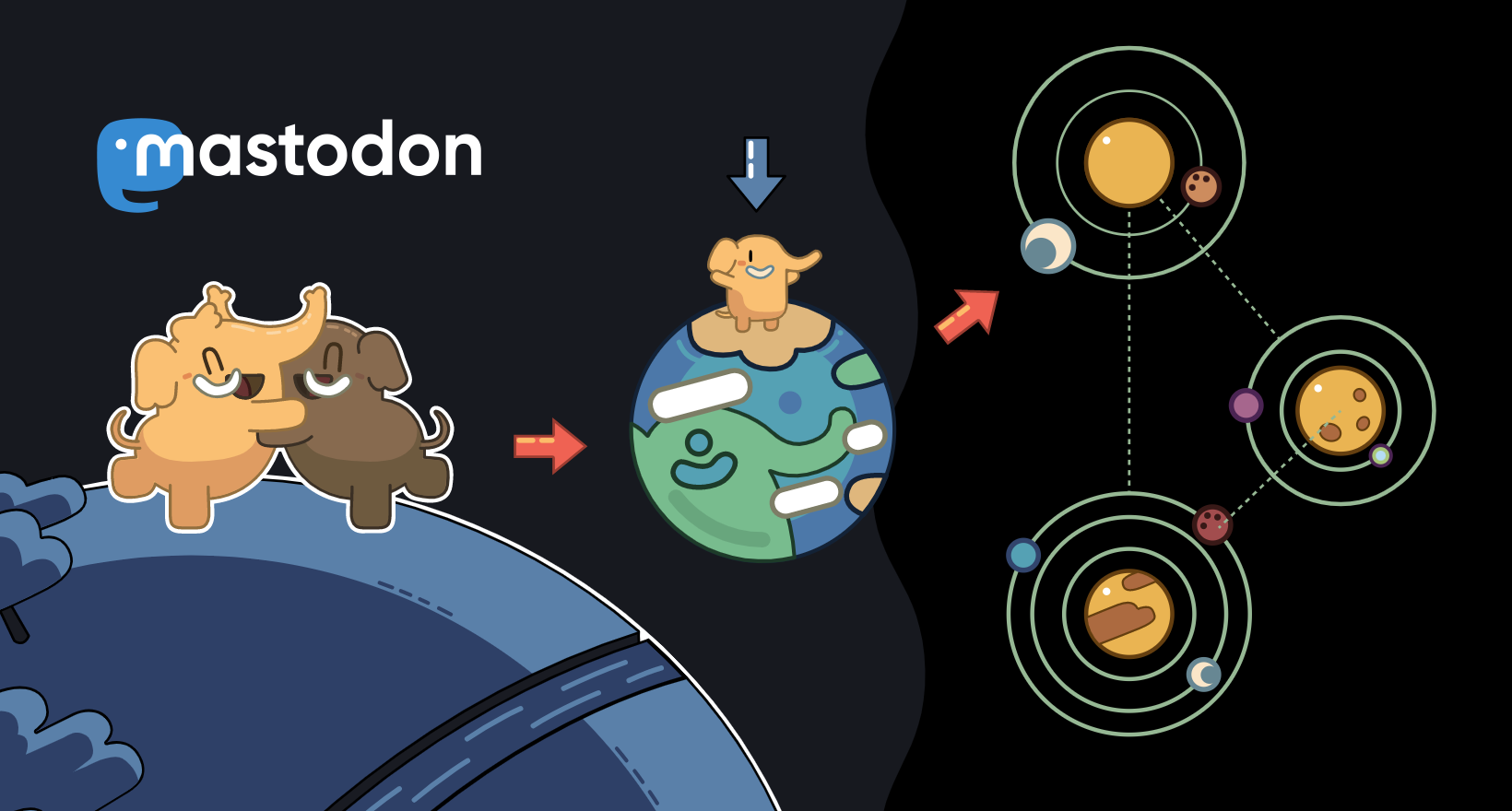
Politicians on Mastodon and Twitter: A Comparative Analysis
Politicians have long used social media platforms like Twitter to connect with constituents, share policy updates, and engage in public discourse. Twitter’s large user base and real-time updates make it a popular choice for politicians worldwide.
However, Mastodon’s focus on user control and privacy has also attracted several politicians and political activists, particularly those concerned about censorship and data privacy on more mainstream platforms. The choice between Mastodon and Twitter can depend on various factors, including the politician’s target audience, the platform’s user base, and the specific features of each platform.
User Interface
While both platforms have a similar microblogging format, there are some differences in their user interfaces. Mastodon’s interface is more community-centric, with features designed to foster interaction within servers. Twitter’s interface, while also designed for interaction, places a greater emphasis on trending topics and popular content.
Exploring the World of Free Speech on Mastodon and Twitter
Freedom of speech is a fundamental right that is cherished by users on both Twitter and Mastodon. Twitter, with its vast user base, has been the go-to platform for many to voice their opinions, share their thoughts, and engage in global conversations. However, the platform has faced criticism over its handling of hate speech and misinformation, leading some Twitter users to seek alternatives.
Mastodon, often touted as a Twitter alternative, offers a decentralized platform where users can express themselves freely. The platform’s unique structure allows for a diverse range of opinions and discussions, fostering a sense of community and free speech. Unlike Facebook and Twitter, where content moderation is centralized, Mastodon allows individual servers or “instances” to set their own moderation policies, providing users with more control over the content they see and engage with.
What makes Mastodon a better choice than Twitter for some users?
Mastodon offers several advantages over Twitter. Its open-source nature allows for greater user control and customization. The platform’s decentralized structure also provides more privacy, as users can choose to join servers that align with their preferences and values. Additionally, Mastodon’s content moderation is often more stringent than Twitter’s, leading to a safer and more respectful online environment.
Truth Social, Bluesky, and the Rise of Twitter Alternatives

The rise of Twitter alternatives like Truth Social and Bluesky has been fueled by growing concerns over data privacy, content moderation, and the monopolistic power of tech giants like Facebook and Twitter. Mastodon, with its focus on user privacy and control, has emerged as a popular choice among these alternatives.
Mastodon’s decentralized structure allows users to pick from various “instances,” each with its own community and moderation policies. This structure provides a level of user control and privacy not typically found on more mainstream platforms like Twitter or Facebook.
FAQs
Who Has More Users, Twitter or Mastodon?
Mastodon is an alternative to Twitter, but has fewer users than Twitter. So, with only 2.5 million users, which isn't too bad after all, Twitter still rules completely over Mastodon, with around 330 million users. Twitter has 100 times or even more users than Mastodon.
Why is Mastodon considered a viable alternative to Twitter?
Mastodon is considered a viable alternative to Twitter due to its open-source nature, decentralized structure, and strong content moderation. These features provide users with more control over their online experience and can lead to a safer and more respectful environment. However, whether Mastodon is a better choice than Twitter ultimately depends on individual user preferences and needs.
Conclusion
Both Twitter and Mastodon offer unique social media experiences. Twitter’s large user base and straightforward interface make it a popular choice for many. However, Mastodon’s focus on user control, privacy, and community-centric structure make it an appealing alternative, particularly for tech-savvy users and those seeking a more personalized social media experience.
Ultimately, the choice between Twitter and Mastodon will depend on individual user preferences and needs.
